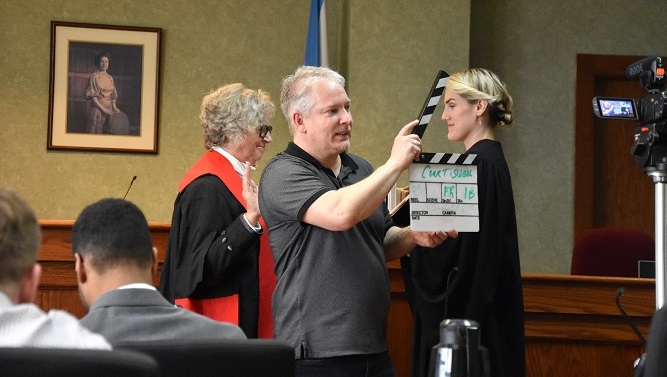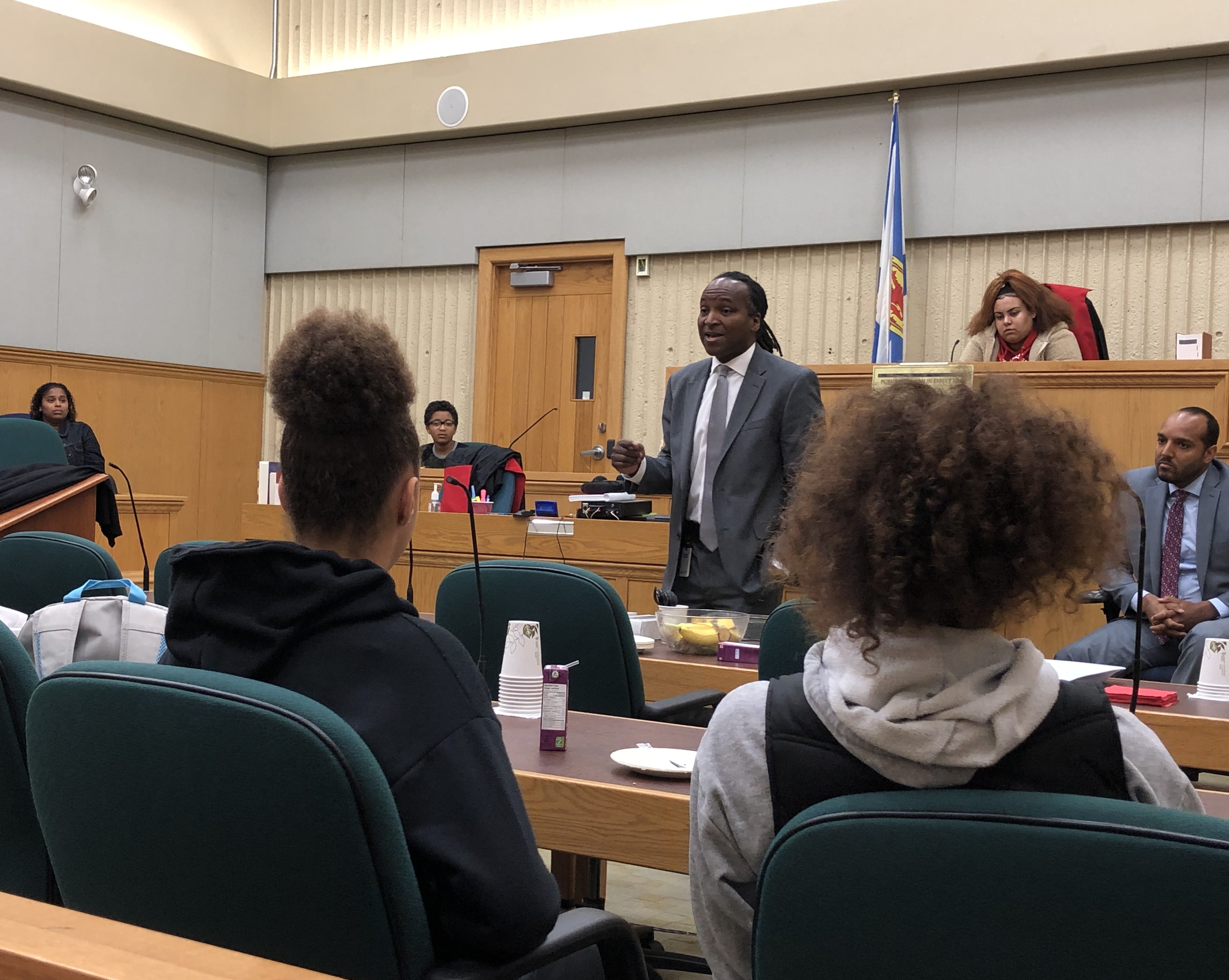Through the Courtrooms and Classrooms program, students can visit a Nova Scotia courthouse, meet judges, and sit in on a real trial. Classes can participate in mock trials at their school or in a courthouse. This program also offers educational videos, quizzes and other resources for instructors and teachers.
Main navigation: show child menu items
Judges in Canada
A critical piece in maintaining, preserving and enhancing the justice system in Canada is educating the public. This is also one of the primary objectives of the Canadian Superior Courts Judges Association (CSCJA). By ensuring Canadians understand how the justice system functions and what they can expect, the CSCJA is helping promote effective and timely access to justice for all.

With that in mind, the CSCJA, which represents nearly all of the federally appointed judges in Canada, has developed video teaching tools in English and French. The videos, aimed at new and young Canadians, illustrate what people are entitled to expect from judges in Canadian Courts and cover principles fundamental to the justice system, including judicial independence and the Rule of Law.
Educational messages are embedded in the video about a young man who, while returning his child to her mother, becomes involved in a car accident. This results in criminal charges. The child’s mother then applies to the family court to seek restrictions on his contact with his child. Our narrator, The Honourable Justice Samuel Moreau, now a Justice of the Supreme Court of Nova Scotia (Family Division), walks the viewer through the young man’s story. In a courtroom scene, The Honourable Justice Deborah Gass, now retired, addresses Weldon’s fear about discrimination within the justice system. The video identifies the citizen’s legal entitlement to a fair hearing according to the evidence and the law, regardless of age, race, religion, sexual orientation or cultural origin.
DOWNLOAD THE TEACHER'S GUIDE (ENGLISH)
DOWNLOAD THE TEACHER'S GUIDE (FRENCH)
Visit a Courthouse
The Courts exist to serve society. With that in mind, the Open Court Principle makes the judicial process transparent so that all involved can be held accountable. Except in rare circumstances, that means members of the public have a right to attend court to watch trials and other proceedings.
The Nova Scotia Courts offer junior high, high school and post-secondary students the opportunity to visit a courthouse in their community and sit in on a real court proceeding. If time allows, the presiding judge will often speak with students and take questions during the break. The Courts can also arrange for a judge to visit your school or speak virtually to students of all ages.
If you are a teacher or student interested in visiting a courthouse or attending a court proceeding, please contact the Executive Office of the Nova Scotia Judiciary at communications@courts.ns.ca or by telephone at 902-424-3690.
Justice Day Camps
Since 2018, the Nova Scotia Courts have been working with the Nova Scotia Department of Justice, the Nova Scotia Public Prosecution Service, the Nova Scotia Legal Aid Commission, private law firms, law enforcement agencies, schools, and local community groups to offer Justice Day Camps for young people from African Nova Scotian and Indigenous communities.
 Justice Day Camps provide opportunities for young people to learn firsthand about the Courts and the institutions that make up the legal system. Participants have direct access to judges, lawyers, deputy sheriffs, police officers, and others who work in justice. The goal is to help educate and build positive relationships between the young people and law enforcement and justice officials, and hopefully encourage more participants to consider a career in one of these fields.
Justice Day Camps provide opportunities for young people to learn firsthand about the Courts and the institutions that make up the legal system. Participants have direct access to judges, lawyers, deputy sheriffs, police officers, and others who work in justice. The goal is to help educate and build positive relationships between the young people and law enforcement and justice officials, and hopefully encourage more participants to consider a career in one of these fields.
Past camps have featured stops at the Halifax Provincial Court, Halifax Regional Police headquarters, and the Halifax Law Courts. Whenever possible, participants are also given the chance to sit in on a live court proceeding or alternatively, to participate in a mock trial.
For more information, or to start planning a Justice Day Camp event in your area, please contact Jennifer Stairs, Director of Communications for the Nova Scotia Judiciary, at communications@courts.ns.ca or by telephone at 902-424-6018.
Take Our Kids to Work Day
Launched in 1994, Take Our Kids to Work is now the most recognized career education event in Canada, with an estimated 200,000 students visiting workplaces every year. This initiative enables Grade 9 students to spend the day in the workplace of a parent, relative, friend or volunteer host. Courthouses across Nova Scotia often participate through requests from Department of Justice staff or private law firms.
In 2019, under the leadership of Justice Christa Brothers on the Supreme Court (General Division), the Halifax Law Courts organized a pilot program uniquely designed for African Nova Scotian students who otherwise may not have the opportunity to visit a workplace for a day. The program was available to Grade 9 students at Oxford School, Highland Park Junior High School and St. Agnes Junior High School, and featured many of the same volunteer speakers as the Justice Day Camps.
For more information on the pilot program, or to participate in Take Our Kids to Work Day at a Nova Scotia courthouse, please contact Jennifer Stairs, Director of Communications for the Nova Scotia Judiciary, at communications@courts.ns.ca or by telephone at 902-424-6018.
Mock Trials
High school law classes can participate in mock trials at their school or in a courthouse. To obtain copies of a prepared mock trial script or to arrange a mock trial at a courthouse, please contact the Executive Office of the Nova Scotia Judiciary at communications@courts.ns.ca or by telephone at 902-424-3690.
Other Criminal Justice Resources For Teachers
Éducaloi's Youth Zone offers tons of information about the legal system and the obligations of adolescents.
The Access to Justice Network (ACJNet) in Alberta provides a list of Frequently Asked Questions and answers for students.
Provincial Court Committal Process
Accused Committed to Trial in the Supreme Court
